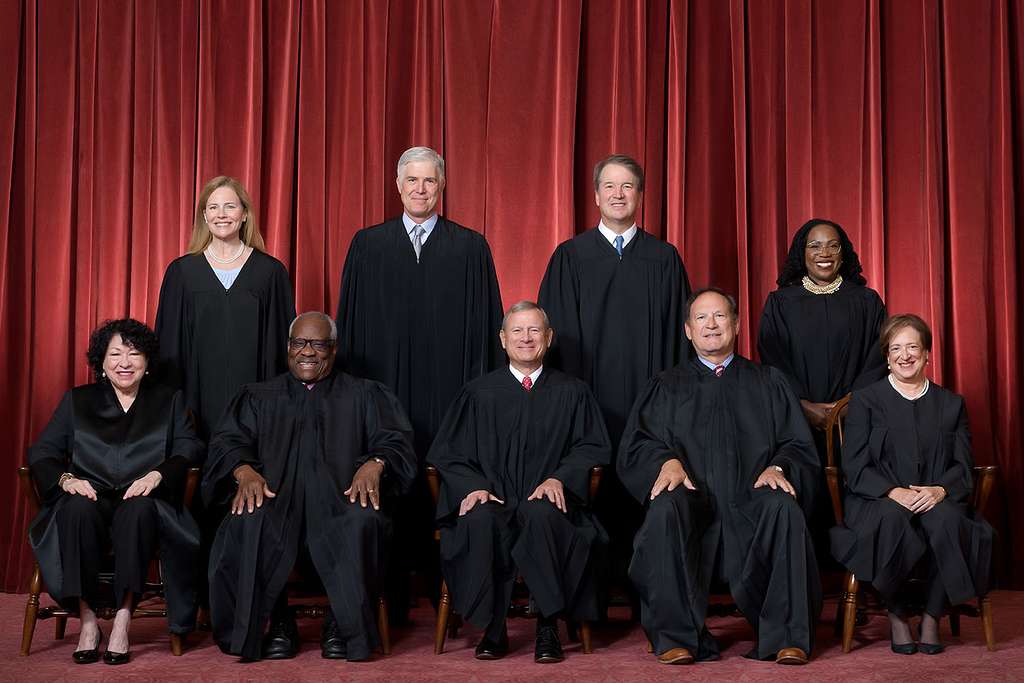Last week we blogged about a Supreme Court ruling that allows states to ban transgender treatments for minors. Rulings issued at the end of the court’s term also hinder porn, LGBTQ indoctrination in schools, Planned Parenthood, and activist courts.
—States may protect children by requiring porn sites to verify the ages of their users. The court upheld a Texas law to that effect, which was vigorously opposed by the pornography industry.
“[The] First Amendment leaves undisturbed States’ traditional power to prevent minors from accessing speech that is obscene from their perspective,” wrote Justice Clarence Thomas in his majority opinion. “That power necessarily includes the power to require proof of age before an individual can access such speech. It follows that no person — adult or child — has a First Amendment right to access speech that is obscene to minors without first submitting proof of age.”
Twenty-four states have passed age-verification laws, though some have not gone into effect yet or have been stayed pending legal challenges. Those states are Alabama, Arizona, Arkansas, Florida, Georgia, Idaho, Indiana, Kansas, Kentucky, Louisiana, Mississippi, Missouri, Montana, Nebraska, North Carolina, North Dakota, Oklahoma, South Carolina, South Dakota, Tennessee, Texas, Utah, Virginia, and Wyoming.
Pornographers fear that the requirement will also inhibit adult users, who might feel ashamed to submit their IDs. To avoid having to install age-verification software and the risk of legal penalties for violations, some pornographers will not make their products available in states rigorous requirements, so the ruling may be especially beneficial to society.
—Parents may refuse to allow their children to be subject to schools’ LGBTQ indoctrination. The court ruled that a Maryland school district may not require all children to take part in an LGBTQ curriculum, even over the objections of their parents.
The Montgomery County school district near Washington, D.C., approved an English arts curriculum that required children beginning in pre-kindergarten to read or have read to them 22 story books about homosexuality, same-sex marriage, gender dysphoria, and other sexually explicit themes. At first, parents could opt out their children, but that right was taken away, with the school mandating the program for children even over their parents’ objections.
According to Justice Samuel Alito, writing for the majority, “The Board’s introduction of the ‘LGBTQ+-inclusive’ storybooks, along with its decision to withhold opt outs, places an unconstitutional burden on the parents’ rights to the free exercise of their religion.”
Leading the lawsuit against the mandate, to their credit, were Muslim parents. Later, they were joined by Catholic and Orthodox parents. (Memo: Muslims tend to agree with conservative Christians on moral and pro-family issues. When possible, work with them on compatible causes.)
—States may prevent tax money from funding Planned Parenthood. The court upheld a South Carolina law that forbade state Medicaid money from going to Planned Parenthood, the nation’s largest abortion provider, because of the state’s anti-abortion law. A patient sued, saying that the state’s Medicaid policy of allowing patients to choose any qualified provider gave her the right to choose Planned Parenthood for other, non-abortion services that it provides.
Justice Neil Gorsuch in his majority ruling explained that the Medicaid law “does not clearly and unambiguously confer individual rights” enforceable in court.
—Lower Courts may not issue “universal injunctions” against actions of the Executive Branch. District courts have been issuing injunctions stopping the enforcement of some of President Trump’s executive orders, especially regarding immigration. This particular case deals with a lower court that enjoined the president from implementing his contention that “birth-right” citizenship is not valid.
The court did not decide that constitutional issue. In her ruling for the majority, Justice Amy Coney Barrett focused on “universal injunctions,” which, she concludes, “likely exceed the equitable authority that Congress has given to federal courts.”
What the ruling means, according to Dan McLaughlin, is to restrict the scope of court injunctions, which can only apply to the particular individuals involved in a lawsuit. There can be class action suits, which have to go through a certain process, and sometimes Congress passes laws that give courts universal authority in certain kinds of cases. And cases can be litigated all the way to the Supreme Court, which can issue a definitive ruling that applies universally. But local courts cannot thwart the actions of the Executive Branch on their own, a tactic that conservatives used against President Biden and that now progressives are using against President Trump.
Photograph: The Supreme Court of the United States–Roberts Court 2022 by supremecourt.gov via Picryl, Public Domain.











